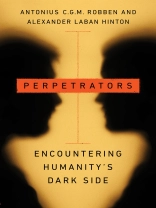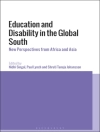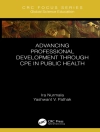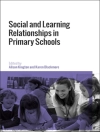Perpetrators of mass violence are commonly regarded as evil. Their violent nature is believed to make them commit heinous crimes as members of state agencies, insurgencies, terrorist organizations, or racist and supremacist groups. Upon close examination, however, perpetrators are contradictory human beings who often lead unsettlingly ordinary and uneventful lives. Drawing on decades of on-the-ground research with perpetrators of genocide, mass violence, and enforced disappearances in Cambodia and Argentina, Antonius Robben and Alex Hinton explore how researchers go about not just interviewing and writing about perpetrators, but also processing their own emotions and considering how the personal and interpersonal impact of this sort of research informs the texts that emerge from them.
Through interlinked ethnographic essays, methodological and theoretical reflections, and dialogues between the two authors, this thought-provoking book conveys practical wisdom for the benefit of other researchers who face ruthless perpetrators and experience turbulent emotions when listening to perpetrators and their victims. Perpetrators rarely regard themselves as such, and fieldwork with perpetrators makes for situations freighted with emotion. Research with perpetrators is a difficult but important part of understanding the causes of and creating solutions to mass violence, and Robben and Hinton use their expertise to provide insightful lessons on the epistemological, ethical, and emotional challenges of ethnographic fieldwork in the wake of atrocity.
قائمة المحتويات
Introduction: Approaching Perpetrator Research
1. Spectacular Perpetrators
2. Seductive Perpetrators
Interlude: The Perpetrator and the Witness
Interlude: ‘They Were No More. None of Them. They Had Become Disappeared.’
3. The Night Stalkers
4. Ruin
Interlude: For the Sake of the Fatherland
Interlude: Interrogation: Comrade Duch’s Abecedarian
5. Nearing the Paradox
6. Curation
Conclusion: Six Guideposts for Perpetrator Research
عن المؤلف
Antonius C.G.M. Robben is Professor Emeritus of Anthropology at Utrecht University in the Netherlands. He is the author of
Argentina Betrayed: Memory, Mourning, and Accountability (2018) and
Political Violence and Trauma in Argentina (2005).
Alexander Laban Hinton is Distinguished Professor of Anthropology at Rutgers University and UNESCO Chair in Genocide Prevention. He is the recipient of the American Anthropological Association’s 2022 Anthropology in Media Award for his work raising awareness of genocide and human rights. He is the author of
The Justice Facade: Trials of Transition in Cambodia (2018) and
Man or Monster? The Trial of a Khmer Rouge Torturer (2016).












